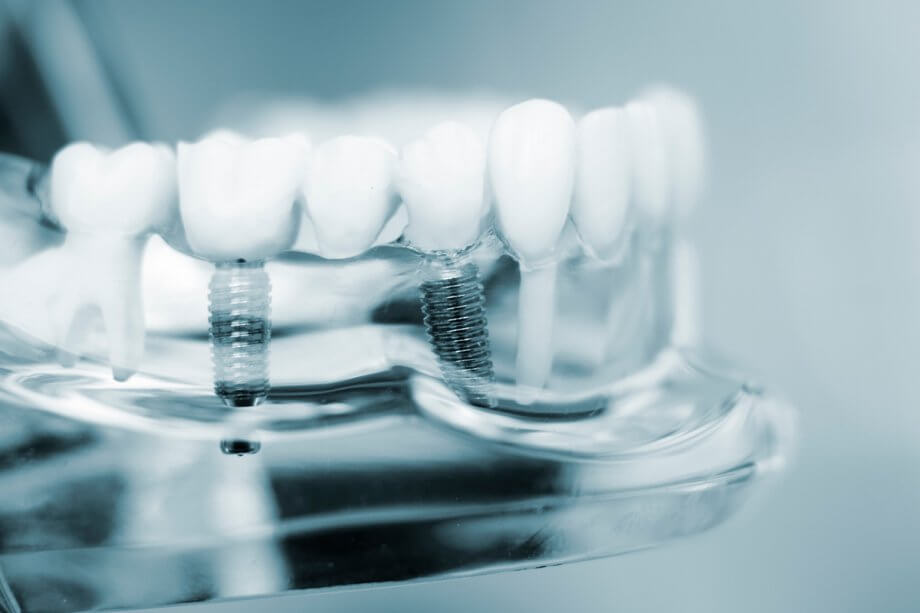If you’re considering getting dental implants to replace a missing tooth or teeth, it’s natural to worry about pain. The good news though, is that the dental implant procedure itself isn’t painful. A local anesthetic will be administered, completely numbing the area where you’ll have your implant(s) placed. You may experience a bit of pressure as your jaw is drilled. However, because the bone has no nerves, the drilling won’t hurt. You may experience mild discomfort and tenderness for up to a week after your implant. However, this pain can be managed with over-the-counter pain medication.
What to Expect During Dental Implant Surgery
Before Dr. Minoli or Dr. Vijay begins surgery, you will be administered anesthesia to numb your mouth. Then, your gums will be opened to allow access to the jaw bone. A hole to support the implant will be drilled into your jawbone. The titanium screw which serves as the tooth root is then screwed into the hole. Once the screw is securely in place, your gums will be stitched to close the incision. A temporary crown will be placed over the screw.
After surgery, an amazing process called osseointegration begins to take place. This is a process in which the jaw bone grows up the sides of the screw. This process may take several weeks to several months. Once Dr. Vijay or Dr. Minoli confirms that the implant is fully secure, your permanent crown will be fitted on the implant.
Dental implants are an incredible innovation in restorative dentistry. Far superior to dental bridges or dentures, dental implants offer a host of benefits including:
- Providing a natural appearance
- Functioning like a normal tooth
- Preserving jaw bone
- Lasting durability
- Biocompatibility with the human body and bone cells
- Reducing sunken or hollow appearance
- Preventing existing teeth from shifting to fill gaps
Types of Dental Implants
There are four main treatments that use implants.
Single Tooth Implant
A single tooth implant replaces a missing tooth. This aids in supporting the adjacent teeth, and giving you a complete smile.
Implant Supported Bridges
If you’re missing multiple, consecutive teeth, a dental bridge can be placed using two implants as the anchors for the bridge.
Implant Supported Dentures
If you’re missing most of your teeth on either the top or bottom jaw, implant-supported dentures may be right for you. Partial dentures can often be supported by two implants, while full dentures will require at least four implants to secure in place. A benefit of implant-supported dentures compared to regular dentures is that they attach without the need for denture adhesive, and are more comfortable to wear.
Full Arch Using Four Implants
If you are missing all teeth on the top or bottom jaw, a full arch may be replaced, using just four implants as anchors to support all of the teeth in the arch.
Dental Implants on the Upper East Side
For more than 25 years, Minoli & Vijay have provided NYC with comprehensive dental care. From cosmetic treatments to restorative dentistry, and treatment for TMJ and sleep apnea, Dr. Vijay and Dr. Minoli are some of Manhattan’s most sought-after dentists. Whether you need emergency treatment for tooth pain, or you’re ready to discuss your options for replacing missing teeth, Minoli & Vijay are here to help. Request an appointment online, or call 212-888-4140.

